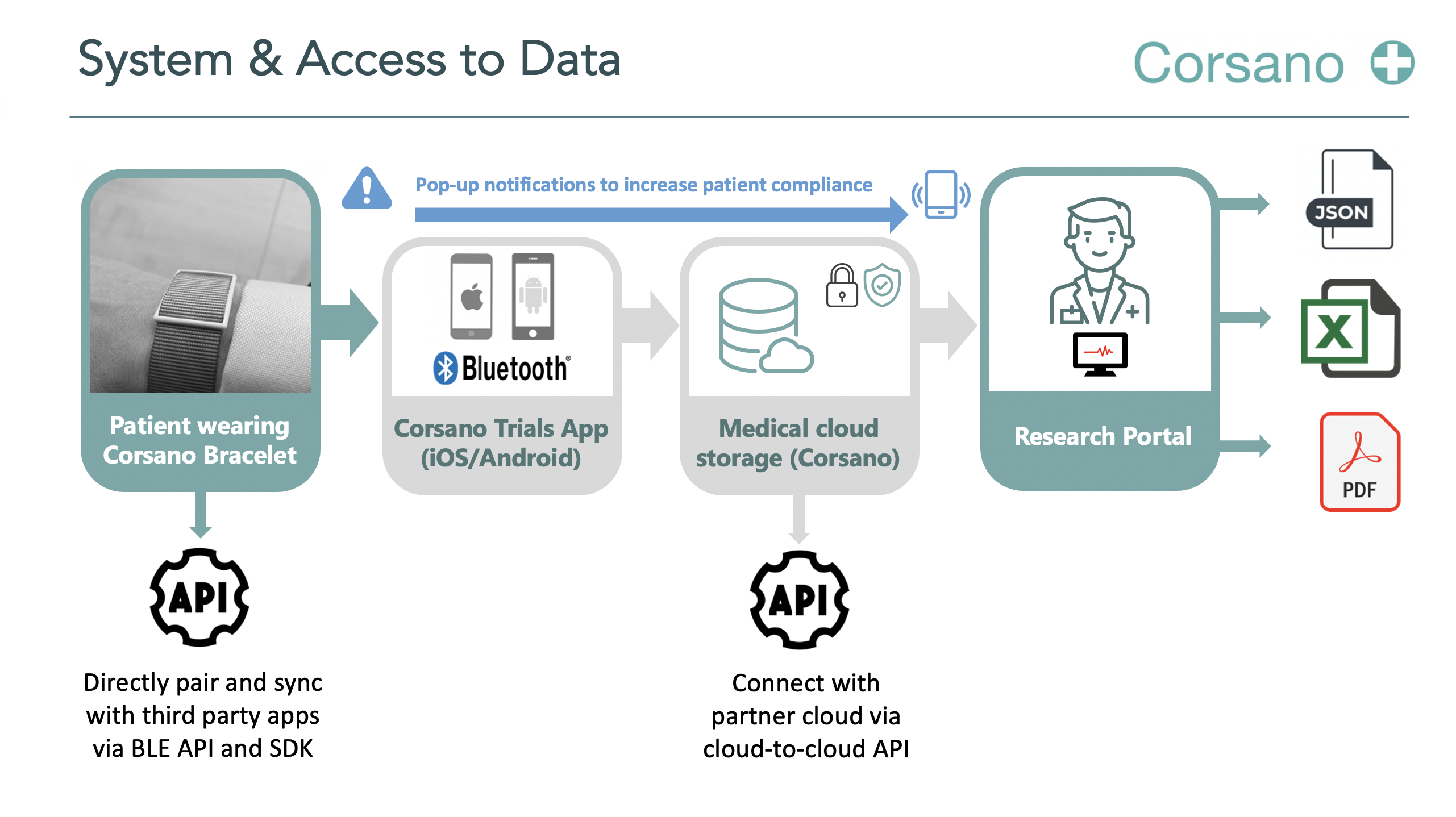Title
Investigating the potential of Corsano Cardiowatch 287 monitoring bracelet in monitoring patients with Chronic Obstructive Pulmonary Disease (COPD) at high risk of exacerbations: A qualitative investigation with patients and respiratory healthcare professionals.
Rationale
Chronic obstructive pulmonary disease (COPD) is a chronic inflammatory lung disease characterized by long-term respiratory symptoms and airflow limitation. It affects millions of people worldwide and places a significant economic and health burden on societies and their patients. Exacerbations are an acute and sustained worsening of symptoms, which are associated with significant morbidities such as increased healthcare utilization, poor health status and death. When exacerbations are treated promptly, recovery time and risk for future hospital admissions can be reduced. Hence, there is a need for early detection of COPD exacerbations is evident, as early intervention is a key factor in improving outcomes and preserving quality of life. Emerging technologies in telemedicine and remote patient monitoring can support pro-active management of patients at risk of COPD exacerbations. The Corsano Cardiowatch is a wearable monitoring bracelet that enables continuous monitoring of vital parameters (e.g., heart rate, heart rate variability, breathing rate, atrial fibrillation, physical activity, sleep, temperature), which could be used as a tool to support timely recognition of exacerbations.
Objective
The primary objective of this study is to explore the potential use and value of the Corsano Cardiowatch in monitoring patients with COPD at high risk of an exacerbation, in terms of timely recognition and treatment of an exacerbation. More specifically, we aim to explore its potential 1) during the first 2 months after a hospital admission due to an exacerbation, and 2) in the longer-term. The secondary aim of this study is to investigate potential relevant factors hindering or facilitating the use and implementation of the bracelet as identified by its end-users (i.e., patients and healthcare professionals).
Study design
The study comprises a qualitative design. Two semi-structured focus group interviews will be conducted with relevant stakeholders; one with patients with COPD and one with respiratory healthcare professionals (HCPs). The interviews will be conducted online with 4 to 6 participants and will have a duration of 60 minutes for the HCPs and 75 minutes for the patients respectively.
Study population
We aim to recruit a total of 4 to 6 patients with COPD and a total of 4 to 6 respiratory HCPs (i.e., pulmonologist and nurse specialists). Both patients and HCPs will be recruited in 2 hospitals: Alrijne Hospital Leiderdorp and Franciscus Gasthuis&Vlietland in Rotterdam. Inclusion criteria for patients are 1) being aged 18 years or older, 2) having a diagnosis of COPD, 3) having been admitted to the hospital for an acute exacerbation of COPD in the past 2 years 4) being able to understand, read and speak the Dutch language. The inclusion criteria for HCPs will be that they are treating patients with COPD in one of the participating hospitals.
Main study parameters/endpoints
Expectations, opinions, and attitudes of HCPs and patients regarding the potential of Corsano Cardiowatch for patients with COPD at high risk of exacerbations. More specifically, 1) the potential use and value of the Corsano Cardiowatch during the first 2 months after a hospital admission due to an exacerbation, 2) the potential use and value of the Corsano Cardiowatch in the long-term, 3) potential facilitators and barriers for the use and implementation of the Corsano Cardiowatch.
Number of Participants
12 patients with COPD or respiratory HCPs
Inclusion / Exclusion criteria
Inclusion criteria:
being aged 18 years or older
having a diagnosis of COPD
having been admitted to the hospital for an acute exacerbation of COPD in the past 2 years
being able to understand, read and speak the Dutch language.
Exclusion criteria:
N/A
Study Centre
National eHealth Living Lab (NeLL)
Leiden University Medical Center (LUMC)
Start time, Duration
September 2022, 4 months
Interested in our Trial Programme?
Corsano Cardiowatch Bracelets enable continuous monitoring with multiple algorithms. Corsano is working closely with cardiologists, scientists, hospitals, patients, and research organisations. Scientific research demonstrates the legitimacy of Cardiowatch 287 algorithms.
We are currently performing pilots with selected clients. Contact us if you want to know more!
The founders of Corsano Health have over 100 years of experience in the Swiss Watch industry, with deep experience about ergonomic design and materials for wearables that are worn 24/7.
